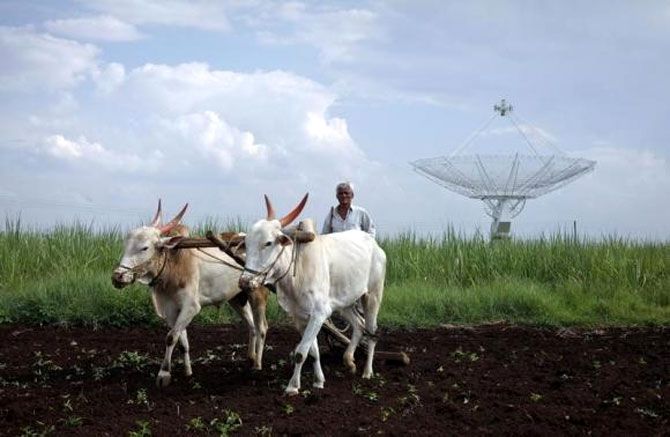The changes in the ordinance have been made after taking inputs from states suggesting changes to the Act which would make it more industry-friendly

After a failed winter session of Parliament, the government recommended promulgating an ordinance for changes to the Right to Fair Compensation and Transparency in Land Acquisition, Rehabilitation and Resettlement Act, 2013. Justifying the use of ordinance, Finance Minister Arun Jaitley said the government had to amend the Act before the end of the year since Section 105 of the Act, which provides for exempting 13 other central laws, would otherwise have to be notified by December 31.
The 13 pieces of legislation include the Land Acquisition (Mines) Act 1885, Atomic Energy Act, 1962, Railway Act 1989, National Highways Act 1956 and Metro Railways (Construction of Works) Act, 1978. A key change in the ordinance is that the higher compensation and rehabilitation and resettlement package would also apply to the 13 exempted legislations.
“With regard to the process of land acquisition, the priority of the government was that the interest of farmer whose land is to be acquired is paramount,” Jaitley said. Currently, the Act also contains an urgency clause - related to natural disasters and wars - where the acquisition of land is exempted from the stringent requirements in the legislation.
The opposition Congress party has criticised the development and has reached out to all other political parties asking them to come together to block the ‘anti-farmer’ amendments. Congress party general secretary Digvijay Singh said that his party would oppose every move to dilute the Land Acquisition Act.

And while politicians quibble, analysts are upbeat about the government’ move. Commenting on the ordinance, Religare said in a report that the ordinance highlights the government’s intent of bringing in major reforms for the infrastructure/ manufacturing sector. The same would go help the government in executing several of its marquee projects like – 100 smart cities, DFC and DMIC amongst others.
The changes in the ordinance have been made after taking inputs from states suggesting changes to the Act which would make it more industry-friendly. Changes included in the Act include doing away with the consent clause for public private participation (PPP) projects, removing the requirement for mandatory social impact assessment (SIA) study and relaxing the retrospective clause. Experts say that holding a social impact study involving public hearings - procedures that industry executives say would have dragged the acquisition process for years.
One of the key reasons for low rate of investments was the Land Acquisition Act which was introduced by the previous government in January 2014 which not only made the process of acquiring land costly but also tedious. The ordinance will act in ironing out procedural difficulties in land acquisition needed for defence and infrastructural projects.
Goldman Sachs sees this development as positive for India’s infrastructure overall as key projects related to rural infra, electrification, industrial corridors and PPP projects being exempted will result in faster land acquisition and help move along projects that have been stuck for want of land.

The ordinance, however, is unlikely to solve the problems of the manufacturing sector. According to Goldman Sachs, the ordinance will only bring in partial relief as manufacturing sector/industry will still have to go through the process of SIA and obtain mandatory consent and administrative burden related to rehabilitation and resettlement which would continue to impact both infrastructure and industrial projects. Furthermore, the ordinance now includes the earlier exempted 13 acts.
Higher cost of land acquisition is not so much of a negative as long as land acquisition becomes swifter says the Goldman Sachs report. Direct cost related to land acquisition will rise as a result; however, faster land acquisition would result in indirect cost savings for infrastructure projects.
Though the intentions of the government are right the mode selected to implement them are questionable. Unable to solve the parliament logjam adopting the ordinance route is not a healthy sign for the democracy. HSBC Securities in their note point out that "While ordinances can be reissued once they lapse, they may not be perceived as a stable solution by investors wanting secure property rights." It was the stability in policies through a new government which attracted global investors to India in the first place.

.jpg)





